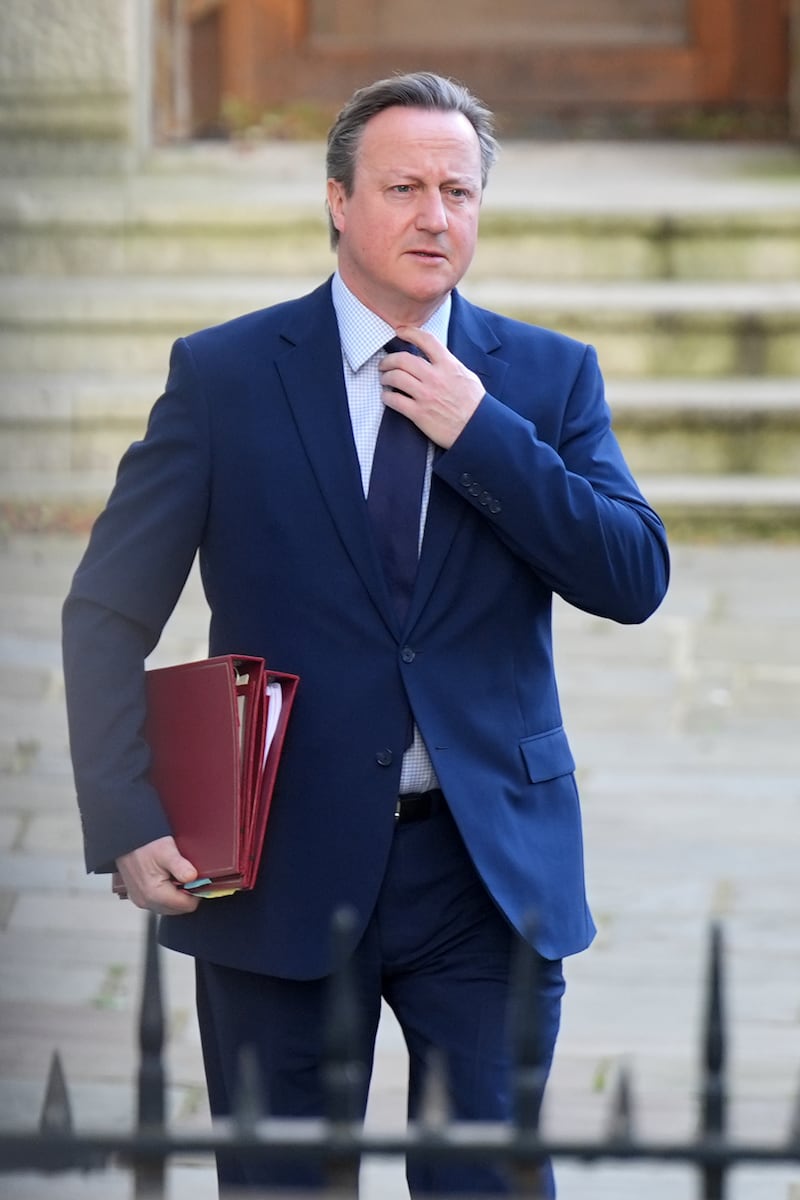Rishi Sunak has called for “calm heads” to prevail amid reports of a retaliatory attack by Israel against Iran.
The Prime Minister said it would not be right for him to speculate on the reports, but said Israel “absolutely has the right to self defence” while also warning the UK’s ally to avoid “significant escalation”.
Lord David Cameron and fellow G7 foreign ministers also urged both sides to exercise restraint and warned Tehran could face new sanctions if it did not heed the calls.
Iran said it fired air defence systems early on Friday at an air base and nuclear site near the city of Isfahan to shoot down drones, which are suspected to be part of an Israeli operation days after it was targeted by a barrage of Iranian drones and missiles.
Tel Aviv has not commented publicly, but unnamed US officials said Israel carried out the airstrikes, according to reports.
Asked about the incident after a speech on welfare reform in London on Friday, Mr Sunak said: “As you would appreciate, it’s a developing situation.
“It wouldn’t be right for me to speculate until the facts become clear, and we’re working to confirm the details together with allies.

“We have condemned Iran’s reckless and dangerous barrage of missiles against Israel on Saturday, and Israel absolutely has the right to self defence.
“But as I said to Prime Minister Netanyahu when I spoke to him last week, and more generally, significant escalation is not in anyone’s interest. What we want to see is calm heads prevail across the region.”
Mr Sunak has not spoken to Israeli leader Benjamin Netanyahu since the Friday morning incident, according to Downing Street.
The foreign ministers of the G7 group of advanced economies condemned Iran’s attack on Israel, writing in a communique from their meeting in Italy: “Israel and its people have our full solidarity and support and we reaffirm our commitment towards Israel’s security. Iran’s actions mark an unacceptable step towards the destabilisation of the region and a further escalation, which must be avoided.
“In light of reports of strikes on April 19, we urge all parties to work to prevent further escalation. The G7 will continue to work to this end.”
The official communiqués of the #G7 Ministers’ meeting on Foreign Affairs held in Capri are available on the #G7Italy website 👇https://t.co/SlSdI7D7Sx pic.twitter.com/zW4QdDnNqA
— G7 Italy (@G7) April 19, 2024
They also said: “We will hold the Iranian government accountable for its malicious and destabilising actions and we stand ready to adopt further sanctions or take other measures, now and in response to further destabilising initiatives.”
Tehran has sought to play down the attack and signalled it had no plans for retaliation.
Cabinet minister Mel Stride declined to say whether the UK would support Israel’s reported strikes in Iran if confirmed, or any further action.
“I don’t want to get into hypotheticals,” he told Sky News.
“We are very firmly engaged in counselling de-escalation and moderation at this particular moment.”
Labour leader Sir Keir Starmer told broadcasters: “I am deeply concerned about the prospect of escalation. Escalation of the conflict in the Middle East is in nobody’s interest and so it is very important therefore that everybody urges restraint on all sides.
“More than that, we really need that ceasefire in Gaza now, straightaway so that hostages can come out, desperately needed aid needs to get in – desperately, desperately needed – and we need, if you like, a foot in the door for the political process to peace.”
Tel Aviv had vowed to respond to Iran’s weekend attack, despite calls for restraint from allies, some of whom – including the UK, US and France – helped Israel repel Tehran’s unprecedented drone and missile barrage.
The onslaught followed Israel’s targeting of an Iranian diplomatic compound in Syria earlier this month.
The two arch foes have waged a shadow war for decades, but the strike over the weekend was the first direct Iranian military attack on Israeli soil.








